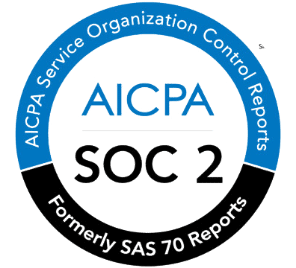Financial Planning Software: Free or For a Fee? 6 Questions to Help Decide What's Best for Your Firm

There is an old proverb that states, “Nothing is for free.”
For most people trying to run a business, there comes a time when this statement is put to the test, particularly when it comes to selecting the right software tools that are needed to be successful.
- While all businesses need software, knowing what type and what to spend is crucial for operational efficiency and financial health.
- When choosing software, you’ll want to consider the potential limitations of free software against the benefits of paid options.
- Investing in good software will usually allow a financial planner to streamline operations, improve efficiency, and provide higher quality service to clients.
- Question #1: What Are Your Firm’s Specific Needs?
- Question #2: What is Your Budget?
- Question #3: How Important is Customization?
- Question #4: What Level of Support Do You Require?
- A Financial Advisor’s Toolkit: Software to Consider for Your Financial Planning Firm
- When Quality Counts, Turn to Holistiplan for Your Tax and Estate Planning Needs
From helping you streamline operations and automate routine tasks to providing advanced analytical tools and enhancing client communication, the right financial software can significantly impact the efficiency and success of your practice.
But one of the biggest questions on the mind of every certified financial planner is this:
Can good financial planning software be free?
Or does it always come with a cost?
Whether you are a newly minted CFP or an established financial planner, the choice between using free software and investing in paid additions to your tech stack can have a significant impact on your operations, your efficiency, and your bank accounts.
With a plethora of software options available in the market, making an informed decision can be challenging, but not impossible.
Let’s look at six questions you can ask yourself in order to determine: 1. whether or not a certain type of software is one that you can obtain for low or no cost, or 2. whether you’ll need to pay for it in order to meet your needs.
Question #1: What Are Your Firm’s Specific Needs?
Understanding what type of needs you have and what type of services you offer are the first things that will help to determine the kind of software you should consider.
For example:

Scope of Services:
Identify the range of services your firm offers. Are you dealing with basic financial management, or do you provide comprehensive services like tax optimization, estate planning, and investment analysis? Knowing this will help determine the level of functionality you need.

Client Demands:
Evaluate the complexity of your clients’ needs. If they require advanced financial strategies, free tools may not suffice. Ensure the software can handle the demands of your client base.

Data Management and Reporting:
Consider the importance of data management and reporting capabilities. Do you need software that organizes and securely stores vast amounts of client data and generates professional reports?

Regulatory Compliance:
Assess whether the software provides built-in compliance features to meet industry standards and legal requirements.

Integration with Other Tools:
Determine if the software needs to integrate with your existing systems, like CRM or accounting tools. Seamless integration can improve efficiency and reduce errors.

Scalability:
Think about your firm’s growth. Will the software scale with your business as you take on more clients and expand services?
By thoroughly understanding your firm’s needs, you will be able to select the most suitable financial planning software for your success and your client’s satisfaction.
Whether it’s free, low cost or minimal cost software, make sure you have thought through how it will be used and what benefits it will bring to your firm.
Elevate Your Practice with Holistiplan
Holistiplan is trusted by thousands of advisors to deliver faster, more valuable financial plans. Start your free 7-day trial and see the difference for yourself
Get Started TodayQuestion #2: What is Your Budget?
Budget constraints are a significant factor in any decision-making process, particularly when you are trying to lead by example and run a financial firm that’s on solid financial footing.

Free financial planning software can be an attractive option for new firms or those with limited financial resources. However, it’s essential to weigh the cost savings against the potential limitations of free tools.
Think about the following:
Initial Investment:
Compare the upfront costs associated with paid financial planning software to the savings from using free tools. While free software eliminates initial expenses, consider whether the features and capabilities of paid software justify the investment.
Ongoing Expenses:
Evaluate the long-term costs, such as subscription fees, maintenance, and support for paid software. Free tools may save money in the short term, but consider if they can sustain your firm’s needs as it grows.
Return on Investment:
Assess how paid software can enhance your firm’s operations and client satisfaction. Consider the potential efficiency gains, time savings, and improved client services that may offset the initial and ongoing costs.
Opportunity Cost:
Consider the trade-offs of not investing in paid software. Free tools might lack advanced features and robust support, which could limit your firm’s ability to provide high-quality services and remain competitive in the market.
By thoroughly analyzing your budget and considering these factors, you can make an informed decision about whether free or paid financial planning software is the best fit for your firm.
Question #3: How Important is Customization?
Customization is a critical factor in how well you’re able to deliver financial advice to your clients.
Financial planning software that you have to invest in will usually offer more robust customization options than anything you can utilize for free.
Here are some of the most important customizable features you should have as a financial planner to offer your clients:
Personalized Financial Plans:
Customizable software allows you to create tailored financial plans that address each client’s unique needs and goals.
This can include specific cash flow management goals, investment strategies, tax plans, retirement savings targets, and more.


Report Generation:
The ability to generate customized reports from any of your client’s financial accounts is essential.
You should be able to design reports that highlight the most relevant information for each client, making it easier for them to understand their financial situation and your recommendations.
Client Communication:
The importance of being able to communicate with each of your clients in the way they prefer, and need is essential. While some clients ask for more generalized data, others want highly detailed information to help plan their financial future.
Make sure to look for software that allows you to do either or both.


Integration with Other Systems:
Your software should be able to integrate seamlessly with other systems you use, such as CRM tools, accounting software, and investment platforms.
Customizable integration options ensure that data flows smoothly between different systems, enhancing overall efficiency.
Financial Projections and Scenarios:
The ability to create and customize financial projections and scenarios is invaluable.
From creating monthly expenses scenarios to predicting early retirement options, you should look for software that allows you to model different financial outcomes based on whichever assumptions you or your client want.


User Interface and Experience:
A customizable user interface can improve the usability of the software.
You should be able to tailor the dashboard and navigation options to fit your workflow, making the software more intuitive and efficient to use.
By selecting financial planning software with robust customization options, you can ensure that your tools are perfectly suited to your firm’s needs and can deliver high-quality, personalized financial advice to your clients.
Built by CFP® Professionals,
for CFP® Professionals
Holistiplan was designed by experienced advisors Roger and Kevin to streamline your financial planning process. Achieve more for your clients in less time
Start Your Free 7-Day TrialQuestion #4: What Level of Support Do You Require?
Customer support is an essential aspect of financial planning software, especially when dealing with complex financial data and regulatory requirements.
When you are willing to invest in high-quality software, it often offers comprehensive support, including training, technical assistance, and regular updates to ensure the software remains compliant with industry standards.
Free financial planning tools may offer limited or no customer support, which can be a significant disadvantage if you encounter technical issues or need assistance with complex features.
The lack of support can lead to increased downtime and reduced productivity, costing you money in the long run.

A Financial Advisor’s Toolkit: Software to Consider for Your Financial Planning Firm
Whether you’re just setting up your practice or have been in the business of financial planning for decades, it’s always a good idea to do some research and find out the latest and most effective forms of software that are available to enhance your practice.
Here are some essential types of software to consider:

Financial Planning Software:
Software that’s created particularly for financial planners is an ideal financial tool for helping to create comprehensive financial plans, covering cash flow analysis, retirement projections, tax optimization, and investment strategies.

Customer Relationship Management (CRM) Software:
Systems for managing client relationships, tracking interactions, and storing important client information are a huge necessity in the financial industry.

Portfolio Management Software:
Portfolio management is at the core of investment advisory services, helping to monitor, manage, and optimize client portfolios. These tools provide advanced analytics, performance reporting, risk evaluation, and rebalancing features to ensure clients’ investments align with their financial goals and risk tolerance.

Tax Planning Software:
Tax planning software is ideal for tax advice services as it identifies tax-saving opportunities and ensures compliance with regulations.

Estate Planning Software:
Estate planning software is essential for helping your clients minimize their estate taxes and make sure their wishes are honored after their death.

Financial Document Management Software:
A secure document system is going to be a high priority for financial planners and their clients. Make sure to look for one that offers features such as digital signatures, encrypted storage, and workflow automation.
No matter the size or scope of your financial practice, having the right software tools can significantly enhance your financial planning practice and improve efficiency, client satisfaction, and overall success.
By incorporating these various types of software systems into your daily operations, you can streamline workflows, better manage client relationships, and provide high-quality service.
When Quality Counts, Turn to Holistiplan for Your Tax and Estate Planning Needs
Very few things are truly free.

But certain things can be well worth their price, particularly when they save you time and money in the long run.
At Holistiplan, we know that every detail and dollar counts when it comes to your financial future. Our software is designed to streamline the complex processes of tax and estate planning, providing you with accurate, efficient, and user-friendly solutions.
By choosing Holistiplan, you are investing in a tool that will help you make informed decisions, maximize your client’s financial potential, and secure your firm’s legacy for years to come.
If you’re ready to see what the industry’s best estate and tax planning software can do for you, give Holistiplan a try today.
Come see what 30,000 other financial planners already know. Holistiplan is the best plan for all your client’s estate and tax planning needs.
Efficiency Meets Value in Financial Planning
Holistiplan bridges the gap between speed and quality, helping advisors like you deliver greater value to every client




